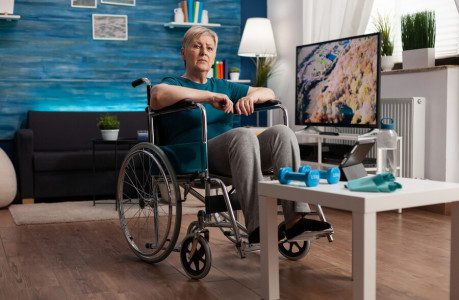Next-Gen Health: How Modern Diagnostics Are Shaping Preventive Care

In an era where technology is revolutionizing every aspect of our lives, healthcare is no exception. The advent of modern diagnostic tools has marked a significant shift in how we approach health and wellness.
This new age of healthcare isn’t just about treating illnesses but preventing them. Advanced diagnostics play a pivotal role in this transformative journey, offering insights into our health that were previously inaccessible.
The Evolution Of Diagnostic Tools
One of the most significant advancements in diagnostic technology is the digital X-ray, and companies like Maven Imaging are at the forefront of this revolution.
Both traditional X-rays and digital X-rays allow for early detection of issues, which is crucial in preventive healthcare. By identifying problems before they escalate, X-rays facilitate early intervention, changing the trajectory of health outcomes. During medical imaging procedures, such as X-rays or certain types of radiological examinations, a thyroid shield is used to cover the thyroid gland and prevent direct radiation exposure. This protective barrier is typically made of lead or lead-equivalent materials, which are effective at absorbing and blocking ionizing radiation.
Predictive Analytics: The Power Of Data In Preventive Care
Modern diagnostics aren’t merely about advanced machinery; they also encompass the power of data and analytics.
Predictive analytics makes use of data, machine learning, and algorithms to identify how likely a future outcome is. This approach is invaluable in preventive care, as it can predict potential health issues before they become apparent.
For instance, data gathered from various diagnostics can indicate a predisposition to certain diseases, enabling healthcare providers to recommend lifestyle changes or treatments to mitigate risks.
Personalized Medicine: Tailoring Healthcare To The Individual
The field of personalized medicine is another area where modern diagnostics are making a substantial impact. By understanding a patient’s unique genetic makeup, healthcare providers can tailor treatments and preventive strategies to the individual.
This bespoke approach to healthcare not only increases the effectiveness of treatments but also minimizes the risk of adverse reactions. Personalized medicine is particularly beneficial in managing chronic diseases, where a one-size-fits-all approach is often inadequate.
Telemedicine And Remote Diagnostics: Bridging The Accessibility Gap
Telemedicine and remote diagnostics have emerged as critical components of modern healthcare, especially in preventive care. These technologies allow patients to access healthcare services from the comfort of their homes, making healthcare more accessible and convenient.
Remote diagnostic tools enable continuous monitoring of vital signs and symptoms, providing real-time data to healthcare providers. This immediacy can be lifesaving in chronic conditions and plays a significant role in preventive health strategies.
The Future Of Healthcare: A Holistic Approach To Wellness
As we delve deeper into the 21st century, the landscape of healthcare continues to evolve. The integration of modern diagnostics in preventive care signifies a shift towards a more holistic approach to health.
This paradigm change emphasizes the importance of early detection and intervention, ultimately leading to better health outcomes and a higher quality of life. The future of healthcare isn’t just about treating diseases but preventing them, and modern diagnostics are the key to unlocking this new era of wellness.
The Future Of Disgonostic Technology: Top Trends
Medical technology is increasing with time, and diagnostic technologies are also moving to a completely new platform. This evolution has marked a complete change. The changes in technology and diagnostic trends are meant for the good. However, here we discuss some of the emerging technology trends in medical care that are going to rock the future of healthcare.
1. Point Home Care Testing And Emerging At-Hone Diagnostic Solutions
New technologies, tools, and machines are slowly entering the frame of medical diagnostics, and they help monitor and manage. The tests are conducted near the patients. These tests facilitate better care. At the same time, these tests help facilitate more precise and better results. Point of care also involves the simplified process of testing, analysis, and, at the same time, storage of technology. It results in accessing better healthcare. It is one of the issues linked with healthcare.
2. Predictive And Personal Genetics
Another predominant trend in modern diagnostics is predictive genetic tests. It helps provide substantial benefits like hair, skin, and tissue samples. The potential is huge, and the stakeholders are identifying it as a positive development in the pathway of comprehensive medical treatment.
3. Real-Time Diagonostics
Real-time diagnostics include glasses, contact lenses, rings, and other implantable devices. They all help collect physical health information like blood pressure, skin temperature, body motions, and respiration rate. They are highly helpful in addressing the contemporary needs.
According to experts, the snapshot view of the patients in one parameter helps in speedy and effective decision-making. They enable continuous monitoring. At the same time, they help in feedback. It ultimately leads to better tracking of an individual’s well-being and general health. Hence, the opportunities are quite bright here.
4. Clinical Decision Support Solutions
One of the brightest trends in medical diagnostics is clinical decision support solutions. Some tools aid in transforming the entire diagnostics. The CDS or the clinical decision support solutions are designed to help bring in a shift through enormous data amounts. Ultimately, they support brightening ideas. The varying applications help suggest the next steps for the treatment.
5. Artificial Intelligence In Medical Imaging
Intelligence systems have been highly beneficial, and they have brought great improvement in medical imaging. A recent data analysis shows that deep learning models’ diagnostic performance has been highly important. There are concerts, and there will be concerns.
However, the methodologies of individual studies have also been highly beneficial, and they encourage further developments. These technologies have been highly beneficial in catering to the present and the future improvement of diagnostic technology in particular and medical technology in general.
Conclusion
The journey towards next-gen health is an exciting and promising one, marked by continuous innovation and a deeper understanding of the human body. As we embrace these advancements, we step into a world where health is not merely a state of being but a lifestyle, driven by knowledge, technology, and the unwavering pursuit of well-being.
Read Also:



























Leave A Reply